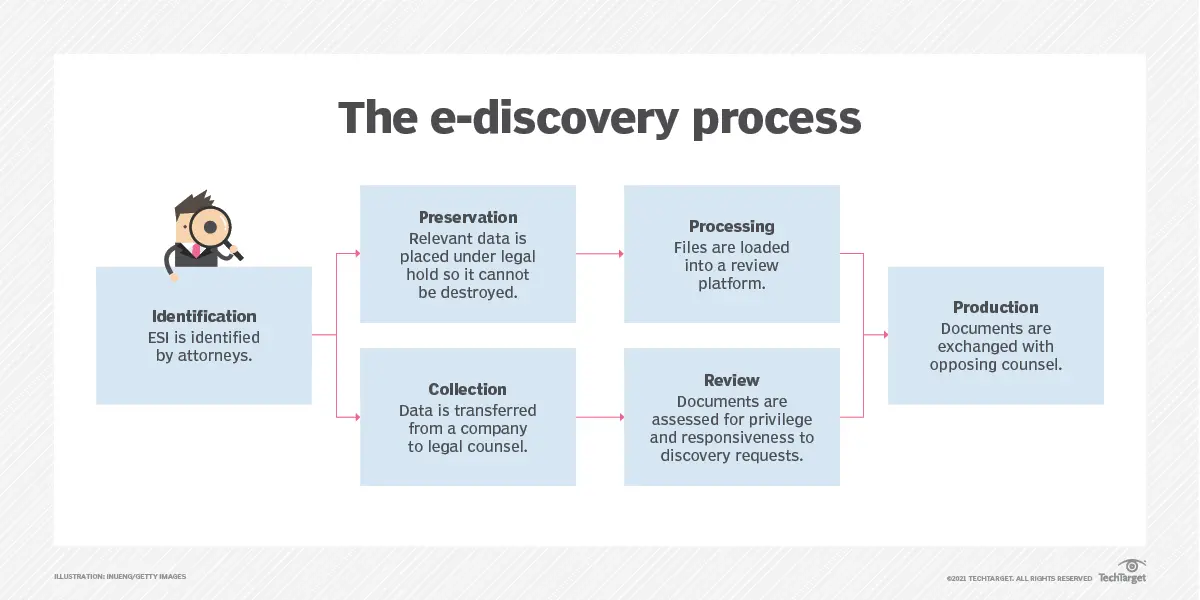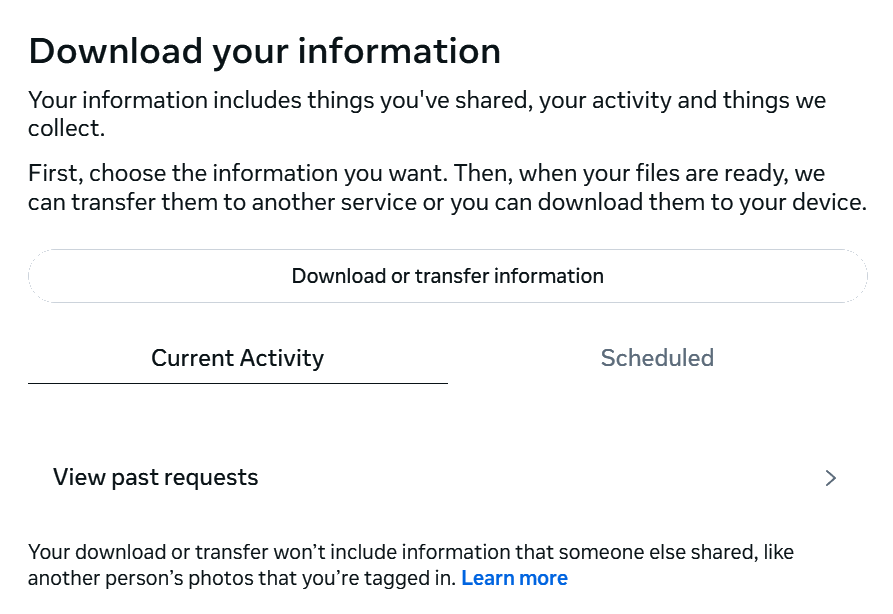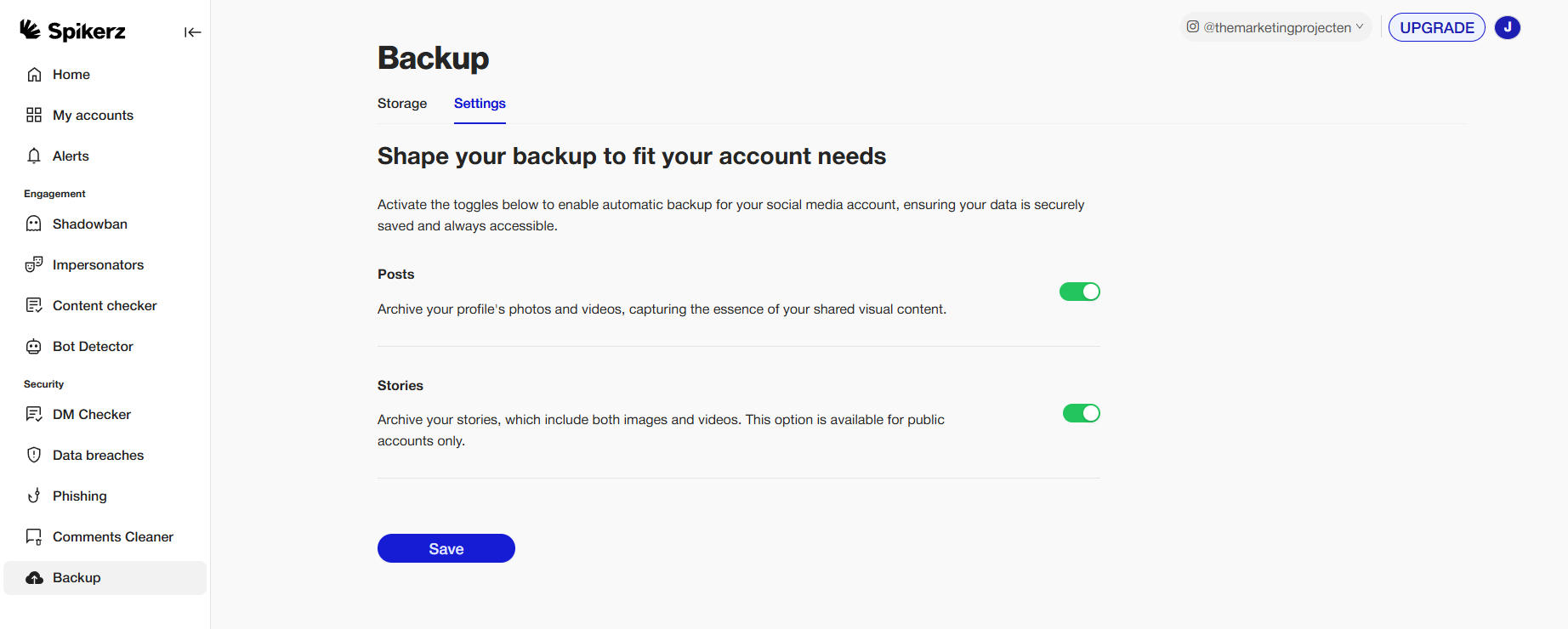What Is Social Media Archiving? Why Is It Important?
Social media can be a double-edged sword for businesses, government entities, and other regulated organizations. While it offers unparalleled opportunities for connection and brand building, it also presents a complex web of compliance risks, potential legal challenges, and reputational threats. Every post, comment, direct message, and piece of multimedia shared carries the weight of potential scrutiny. This is precisely why the systematic capture and preservation of your social media footprint is a non-negotiable compliance must have.
In this post, we'll talk about what social media archiving is, why organizations should prioritize it, who benefits from implementing it, and the risks of neglecting this critical practice. We'll also cover archiving frequency, best methods, and how tools like Spikerz can strengthen your content protection strategy.
What Is Social Media Archiving?
Social media archiving is the process of capturing, preserving, and storing all social media content to keep a digital record of posts, comments, direct messages, likes, shares, and other platform-specific interactions for historical, legal, and cultural purposes.
The system must capture content in its original context, including metadata, timestamps, and the complete chain of interactions. This context is essential when content needs to serve as evidence in legal proceedings or regulatory audits. Without proper archiving, businesses lose valuable documentation that could protect them during disputes or investigations.
Why Should Organizations Archive Their Social Media?
Archiving social media content is more important than you might think; in many cases, it's a legal and regulatory mandate, not a choice. Organizations that fail to properly archive their social media communications face significant financial, legal, and operational risks that can significantly damage their business.
1. Meeting Industry Regulations and Standards
Business-related social media communications are typically subject to recordkeeping and compliance requirements, which vary depending on the specific industry and the regulatory jurisdiction.
For example, according to FINRA Rule 10-06, financial firms are required to preserve their social media records and if they fail to do that it can lead to significant fines.
Regulations like this one enable investigators and auditors from the U.S. Securities and Exchange Commission (SEC) to hold financial service providers accountable to their claims made in advertising and endorsements so that it preserves the integrity of the financial system. Without proper archiving, firms can’t demonstrate compliance during examinations, leading to regulatory violations and reputational damage.
Social media archiving is also an important part of educational institutions. The reason is that it's easy for underaged students to have personal identifiable information (PII) posted on official school social media accounts. With this in mind, more schools have started to archive their social media communication records to help address privacy concerns of students.
2. Improving Information Governance
Archiving helps organize and store all the social media data you generate in a structured way, so businesses can more easily review it, make better decisions, and improve their internal processes. It’s especially important for industries that are subject to regulations like finance or healthcare, where authorities or stakeholders might need to quickly get back specific records.
3. Litigation Readiness

Image source: TechTarget
Courts now regularly accept and request social media content as evidence, making proper preservation essential for legal protection. If your company is ever involved in a lawsuit, you’ll be able to respond to eDiscovery requests (legal demands for electronic data, or ESI - Electronically Stored Information).
4. Protection Against False Advertising Claims
Social media content you post will be held to the same standards as any other promotional content and held to the same legal and regulatory standards, especially if you're in a highly regulated industry. The rules you need to follow will be stricter in these cases.
5. Monitoring and Data Loss Prevention
Manual monitoring of every single post across social media platforms is unrealistic and as more employees gain access to official accounts or use social media to communicate with customers, the chances of mistakes or data loss increases.
Social media archiving is your safety net. When it's combined with automated keyword monitoring, it can scan posts and messages for sensitive terms which shouldn't be shared publicly, and if that content is detected, the system can flag it immediately so you can respond before it's too late.
Who Can Benefit From Social Media Archiving?
Social media archiving benefits individual users, influencers, small enterprises, and major corporations by protecting personal content, maintaining records of customer interactions, and ensuring legal compliance.
- Individual users benefit from preserving personal memories and protecting against account losses or platform changes.
- Influencers and content creators rely on archives to protect their intellectual property and maintain records of their creative work.
- Small businesses use archiving to document customer interactions and build historical records of their marketing efforts.
- Large corporations face the most complex archiving requirements due to regulatory obligations, management of multiple accounts, and extensive content volumes. These organizations need enterprise-grade solutions that can handle massive data volumes while maintaining compliance with various industry regulations.
- Government agencies and educational institutions require robust archiving to meet transparency and accountability requirements.
What Are The Risks Of Not Archiving Social Media Content?
There can be a lot of harmful effects if a reliable social media archiving solution isn't in place. Here are some of them:
If businesses don't save their social media data, they can lose valuable historical engagement data. This information provides crucial insights into customer behavior, campaign effectiveness, and brand sentiment over time. Without these records, businesses can’t analyze long-term trends or show the value of their social media efforts.
Social media posts are visible but if social media platforms make changes to their platform, you can permanently lose content, putting businesses at risk during legal disputes. If they can't access relevant social media content to support their case, they may be unable to adequately defend themselves. Platform outages, policy changes, or account suspensions can eliminate years of valuable content overnight.
Not having social media content archived could be costly for a business in the long run. IT professionals can take hours and hours of searching through social media content to find relevant information in the event of a legal claim. This is a huge time investment that creates additional costs like paying specialized staff to handle these cases or pay current employees overtime. The absence of organized archives multiplies response times and legal expenses significantly.
How Often Should Social Media Content Be Archived?
Social media content should be archived on a regular basis to ensure complete protection against data loss and long-term preservation for business and legal needs.
The frequency depends on the method used and the business's needs, but it's recommended to do it regularly. For example, if you're doing it yourself, you can do it monthly or quarterly. But if you're using an archiving tool, it's best to do it daily or weekly. Automated solutions can perform continuous archiving, capturing content as it's posted for maximum protection.
If you're part of a regulated industry, you should check the specific retention periods for you and the requirements for how the archive is stored. Financial services, healthcare, and government organizations often have strict requirements for both archiving frequency and storage duration. These regulations may require real-time or daily archiving to ensure compliance.
What's The Best Way To Archive Social Media Content?
The best way to archive your social media content depends on your needs, like compliance, type of backup, repurposing, etc. That said, here are some methods to do it:
1) Exporting Data Directly From The Platform

Social media platforms allow you to download an archive of your data through the account settings. You can download posts, messages, comments, photos, videos, and other engagement details. This method works for basic personal archiving but often lacks the context and searchability needed for business use.
2) Using Cloud Storage Platforms
There are cloud storage services that are great for archiving social media content. You can take screenshots of your posts, copy captions into a spreadsheet, and store everything in an organized folder. This method works well if you don't post frequently or just want to save a few posts, but it’s impractical for high-volume accounts.
3) Using Social Media Security Tools With Archiving Capabilities
These are tools that archive your social media content for security, brand monitoring, or protection against malicious activity like hacking or impersonation. These are not traditional archiving tools but they complement your content archiving strategy effectively.

For example, Spikerz continuously scans for risks like unauthorized use of your content, suspicious behavior, or fake accounts impersonating your brand. It also helps you backup your posts automatically in secure cloud storage so you can access and download them anytime, ensuring your content is easily recoverable in case of emergencies, platform issues, or accidental deletions.
4) Using Dedicated Archiving Platforms
There are specialized services for legal compliance or long-term backup like ArchiveSocial. They often include options to archive deleted posts, timestamps, and full metadata. They're ideal for government agencies or organizations in regulated industries that require comprehensive documentation and legal compliance features.
5) Using Social Media Management Tools
These types of tools let you schedule content but also keep a record of your past posts and performance data. They give you the best of two worlds. You can typically export your content calendars, post history, and analytics. They're convenient options for marketers or social media managers mostly, providing integrated workflow management alongside basic archiving capabilities.
Conclusion
Social media archiving is a fundamental business practice that protects your organization from legal, financial, and operational risks. With cybercrime rates climbing and regulatory scrutiny intensifying, organizations that delay this practice expose themselves to unnecessary risks that could have been easily prevented.
Your social media content is a historical record of your business decisions, customer interactions, and brand evolution. Protecting it through systematic archiving ensures that your organization remains prepared for whatever challenges the future may bring, and maintains the competitive advantage that comes from preserving and leveraging your complete social media history.
So take the time to add social media archiving to your strategy. Your business will thank you for it.

